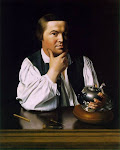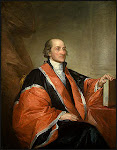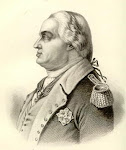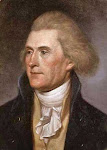Have you ever wondered what happened to the 56 men who signed the Declaration of Independence?
British subjects at the time, they advocated the overthrow of the government for a free and independent America. It was, in fact, our first Civil War. These rebels signed the Declaration of Independence and pledged their lives, their fortunes, and their sacred honor to their new country.
Seventeen fought in the ensuing war. Thomas Nelson was a colonel in the Second Virginia Regiment and William Whipple served with the New Hampshire militia. Oliver Wolcott led the Connecticut regiments sent for the defense of New York and commanded a brigade of militia that took part in the defeat of General Burgoyne. Caesar Rodney was a Major General in the Delaware militia and John Hancock was the same in the Massachusetts militia.
Five of the signers were captured by the British during the war although only Richard Stockton of New Jersey is said to have been imprisoned solely for having signed the Declaration of Independence. He died after a year after he was released. Colonel George Walton was wounded and captured at the Battle of Savannah and was exchanged for a British naval captain. Captains Edward Rutledge, Thomas Heyward, and Arthur Middleton were all captured during the siege of Charleston in 1780 and exchanged a year later, too late to protect their property which had been looted as had the properties of Hall, Clymer, Walton, Hooper and Gwinnett. Gwinnett later died in a duel with a political rival in Georgia in 1777.
Thomas Lynch of South Carolina was arrested in 1780 and held on board a British prison ship for a year. During his imprisonment, his plantation was sacked and his slaves (more than 130) were taken and believed sold to sugar plantations in Jamaica. Twelve others had their homes ransacked and burned. Most of the homes that were destroyed were in the South at a time when the British had adopted a "scorched earth" policy against the colonies in an effort to gain the support of southern loyalists.
Carter Braxton of Virginia, a wealthy planter and trader, saw his ships swept from the seas by the British Navy and, after making several bad investments, was forced to sell his home and properties to pay his debts. Colonel Thomas McKean of Delaware was so hounded by the British that he was forced to move his family almost constantly. He served in the Congress without pay, and his family was kept in hiding.
Legend has it when Thomas Nelson Jr was told the British General Cornwallis had taken over his home for British headquarters, he replied, "Blow the damn thing down." Nelson's house is still standing at Yorktown and there are cannonballs embedded in its east wall.
Francis Lewis had his home and properties destroyed. His home on Long Island was destroyed by British calvary in the fall of 1776. Mrs. Lewis was captured by the British but was eventually released in exchange for a British officer's wife. Mrs. Lewis died two years after her release. Altoghether, eleven signers had their homes and property destroyed.
John Hart was driven from his wife's bedside as she was dying. Their 13 children fled for their lives. His fields and his gristmill were laid to waste. For more than a year he lived in forests and caves, returning home to find his wife dead and his children vanished. A few weeks later he died of exhaustion and a broken heart. Morris and Livingston suffered similar fates.
Abraham Clark of New Jersey had two of his sons captured by the British during the war. The son of John Witherspoon was killed at the Battle of Germantown.
What kind of men were these 56 rebels who signed the Declaration of Independence? Twenty-two were lawyers and nine were judges. Stephen Hopkins had been Governor of Rhode Island. Eighteen of the signers were merchants or businessmen, 14 were farmers, and four were doctors. Although two others had been clergy previously, John Witherspoon of New Jersey was the only active clergyman to attend. He wore his pontifical to the sessions.
These were men of means, interested in the well being of their fellow countrymen. 42 had served in their States legislature. They were well educated men. Seven had attended Harvard, four each at Yale and William & Mary, and three at Princeton. John Witherspoon was the president of Princeton and George Wythe was a professor at William & Mary.
Nine of the signers were immigrants, two were brothers, two were cousins, and one was an orphan. They were slave owners and duelists, men who were good in business and men who were not. In short, they were ordinary human beings, thrust into an extraordinary situation. They put their lives on the line to preserve the country they loved.
After the Revolution, 13 of the signers went on to become governors, and 18 served in their state legislatures. Sixteen became state and federal judges. Seven became members of the United States House of Representatives, and six became United States Senators. James Wilson and Samuel Chase became Justices of the United States Supreme Court.Thomas Jefferson, John Adams, and Elbridge Gerry each became Vice President, and John Adams and Thomas Jefferson became President. The sons of signers John Adams and Benjamin Harrison also became Presidents.
Oddly enough, two of the men who signed the Declaration of Independence died on July 4th! U.S. Presidents John Adams and Thomas Jefferson died 50 years after the signing, to the day. President James Monroe also died on the 4th, but in 1831. On July 4, 1872, President Calvin Coolidge was born. July 4th became a legal holiday until 1941.
Roger Sherman, Robert Morris, Benjamin Franklin, George Clymer, James Wilson, and George Reed later signed the United States Constitution. The Declaration of Independence, along with the Constitution and the Bill of Rights, is on public display at the Rotunda of the National Archives.
So, take a few minutes while enjoying your 4th of July Holiday and silently thank these patriots. It's not much to ask for the price they paid. Remember Freedom is never free!
Saturday, July 4, 2009
July 4th 1776!
July 4 1776 : U.S. declares independence
In Philadelphia, Pennsylvania, the Continental Congress adopts the Declaration of Independence, which proclaims the independence of the United States of America from Great Britain and its king. The declaration came 442 days after the first volleys of the American Revolution were fired at Lexington and Concord in Massachusetts and marked an ideological expansion of the conflict that would eventually encourage France's intervention on behalf of the Patriots.The first major American opposition to British policy came in 1765 after Parliament passed the Stamp Act, a taxation measure to raise revenues for a standing British army in America. Under the banner of "no taxation without representation," colonists convened the Stamp Act Congress in October 1765 to vocalize their opposition to the tax.
With its enactment in November, most colonists called for a boycott of British goods, and some organized attacks on the customhouses and homes of tax collectors. After months of protest in the colonies, Parliament voted to repeal the Stamp Act in March 1766.
Most colonists continued to quietly accept British rule until Parliament's enactment of the Tea Act in 1773, a bill designed to save the faltering East India Company by greatly lowering its tea tax and granting it a monopoly on the American tea trade. The low tax allowed the East India Company to undercut even tea smuggled into America by Dutch traders, and many colonists viewed the act as another example of taxation tyranny. In response, militant Patriots in Massachusetts organized the "Boston Tea Party," which saw British tea valued at some 18,000 pounds dumped into Boston Harbor.
Parliament, outraged by the Boston Tea Party and other blatant acts of destruction of British property, enacted the Coercive Acts, also known as the Intolerable Acts, in 1774. The Coercive Acts closed Boston to merchant shipping, established formal British military rule in Massachusetts, made British officials immune to criminal prosecution in America, and required colonists to quarter British troops. The colonists subsequently called the first Continental Congress to consider a united American resistance to the British.With the other colonies watching intently, Massachusetts led the resistance to the British, forming a shadow revolutionary government and establishing militias to resist the increasing British military presence across the colony.
In April 1775, Thomas Gage, the British governor of Massachusetts, ordered British troops to march to Concord, Massachusetts, where a Patriot arsenal was known to be located. On April 19, 1775, the British regulars encountered a group of American militiamen at Lexington, and the first shots of the American Revolution were fired.Initially, both the Americans and the British saw the conflict as a kind of civil war within the British Empire: To King George III it was a colonial rebellion, and to the Americans it was a struggle for their rights as British citizens.
However, Parliament remained unwilling to negotiate with the American rebels and instead purchased German mercenaries to help the British army crush the rebellion. In response to Britain's continued opposition to reform, the Continental Congress began to pass measures abolishing British authority in the colonies.In January 1776, Thomas Paine published Common Sense, an influential political pamphlet that convincingly argued for American independence and sold more than 500,000 copies in a few months. In the spring of 1776, support for independence swept the colonies, the Continental Congress called for states to form their own governments, and a five-man committee was assigned to draft a declaration.
The Declaration of Independence was largely the work of Virginian Thomas Jefferson. In justifying American independence, Jefferson drew generously from the political philosophy of John Locke, an advocate of natural rights, and from the work of other English theorists. The first section features the famous lines, "We hold these truths to be self-evident, that all men are created equal, that they are endowed by their Creator with certain unalienable Rights, that among these are Life, Liberty and the pursuit of Happiness." The second part presents a long list of grievances that provided the rationale for rebellion.
On July 2, 1776, the Continental Congress voted to approve a Virginia motion calling for separation from Britain. The dramatic words of this resolution were added to the closing of the Declaration of Independence.
Two days later, on July 4, the declaration was formally adopted by 12 colonies after minor revision. New York approved it on July 19.
On August 2, the declaration was signed.The American War for Independence would last for five more years. Yet to come were the Patriot triumphs at Saratoga, the bitter winter at Valley Forge, the intervention of the French, and the final victory at Yorktown in 1781. In 1783, with the signing of the Treaty of Paris with Britain, the United States formally became a free and independent nation.
In Philadelphia, Pennsylvania, the Continental Congress adopts the Declaration of Independence, which proclaims the independence of the United States of America from Great Britain and its king. The declaration came 442 days after the first volleys of the American Revolution were fired at Lexington and Concord in Massachusetts and marked an ideological expansion of the conflict that would eventually encourage France's intervention on behalf of the Patriots.The first major American opposition to British policy came in 1765 after Parliament passed the Stamp Act, a taxation measure to raise revenues for a standing British army in America. Under the banner of "no taxation without representation," colonists convened the Stamp Act Congress in October 1765 to vocalize their opposition to the tax.
With its enactment in November, most colonists called for a boycott of British goods, and some organized attacks on the customhouses and homes of tax collectors. After months of protest in the colonies, Parliament voted to repeal the Stamp Act in March 1766.
Most colonists continued to quietly accept British rule until Parliament's enactment of the Tea Act in 1773, a bill designed to save the faltering East India Company by greatly lowering its tea tax and granting it a monopoly on the American tea trade. The low tax allowed the East India Company to undercut even tea smuggled into America by Dutch traders, and many colonists viewed the act as another example of taxation tyranny. In response, militant Patriots in Massachusetts organized the "Boston Tea Party," which saw British tea valued at some 18,000 pounds dumped into Boston Harbor.
Parliament, outraged by the Boston Tea Party and other blatant acts of destruction of British property, enacted the Coercive Acts, also known as the Intolerable Acts, in 1774. The Coercive Acts closed Boston to merchant shipping, established formal British military rule in Massachusetts, made British officials immune to criminal prosecution in America, and required colonists to quarter British troops. The colonists subsequently called the first Continental Congress to consider a united American resistance to the British.With the other colonies watching intently, Massachusetts led the resistance to the British, forming a shadow revolutionary government and establishing militias to resist the increasing British military presence across the colony.
In April 1775, Thomas Gage, the British governor of Massachusetts, ordered British troops to march to Concord, Massachusetts, where a Patriot arsenal was known to be located. On April 19, 1775, the British regulars encountered a group of American militiamen at Lexington, and the first shots of the American Revolution were fired.Initially, both the Americans and the British saw the conflict as a kind of civil war within the British Empire: To King George III it was a colonial rebellion, and to the Americans it was a struggle for their rights as British citizens.
However, Parliament remained unwilling to negotiate with the American rebels and instead purchased German mercenaries to help the British army crush the rebellion. In response to Britain's continued opposition to reform, the Continental Congress began to pass measures abolishing British authority in the colonies.In January 1776, Thomas Paine published Common Sense, an influential political pamphlet that convincingly argued for American independence and sold more than 500,000 copies in a few months. In the spring of 1776, support for independence swept the colonies, the Continental Congress called for states to form their own governments, and a five-man committee was assigned to draft a declaration.
The Declaration of Independence was largely the work of Virginian Thomas Jefferson. In justifying American independence, Jefferson drew generously from the political philosophy of John Locke, an advocate of natural rights, and from the work of other English theorists. The first section features the famous lines, "We hold these truths to be self-evident, that all men are created equal, that they are endowed by their Creator with certain unalienable Rights, that among these are Life, Liberty and the pursuit of Happiness." The second part presents a long list of grievances that provided the rationale for rebellion.
On July 2, 1776, the Continental Congress voted to approve a Virginia motion calling for separation from Britain. The dramatic words of this resolution were added to the closing of the Declaration of Independence.
Two days later, on July 4, the declaration was formally adopted by 12 colonies after minor revision. New York approved it on July 19.
On August 2, the declaration was signed.The American War for Independence would last for five more years. Yet to come were the Patriot triumphs at Saratoga, the bitter winter at Valley Forge, the intervention of the French, and the final victory at Yorktown in 1781. In 1783, with the signing of the Treaty of Paris with Britain, the United States formally became a free and independent nation.
Thursday, July 2, 2009
It is The Veteran
Remember the Veteran on July 4th.
America's Independence Day is only so because of the courageous few who stood up on behalf of an oppressed people in the name of Freedom and still do today.
Freedom is NOT, and NEVER has been, FREE!
It is the Veteran, not the preacher, who has given us freedom of religion.
It is the Veteran, not the reporter, who has given us freedom of the press.
It is the Veteran, not the poet, who has given us freedom of speech.
It is the Veteran, not the campus organizer, who has given us freedom to assemble.
It is the Veteran, not the lawyer, who has given us the right to a fair trial.
It is the Veteran, not the politician, who has given us the right to vote.
It is the Veteran, who salutes the Flag.
It is the Veteran, who serves under the Flag.
To be buried by the flag.
So the protester can burn the flag.
America's Independence Day is only so because of the courageous few who stood up on behalf of an oppressed people in the name of Freedom and still do today.
Freedom is NOT, and NEVER has been, FREE!
It is the Veteran, not the preacher, who has given us freedom of religion.
It is the Veteran, not the reporter, who has given us freedom of the press.
It is the Veteran, not the poet, who has given us freedom of speech.
It is the Veteran, not the campus organizer, who has given us freedom to assemble.
It is the Veteran, not the lawyer, who has given us the right to a fair trial.
It is the Veteran, not the politician, who has given us the right to vote.
It is the Veteran, who salutes the Flag.
It is the Veteran, who serves under the Flag.
To be buried by the flag.
So the protester can burn the flag.
The real meaning of July 4: Power belongs to the people
As an American by choice rather than birth, I must confess to my growing concern that the 1776 declaration may not mean what it once did to those keepers of the trust who inhabit government today. July 4 serves as a frank invitation to consider the conditions and ideas that launched the promise of America.
What was it that provoked an assortment of dissatisfied and rebellious colonists to organize such a nation?
For over two centuries their dream has served to define freedom for the rest of the world.
How can we recapture the purity of that vision today?
One of the most compelling motivations for revolution was the Founding Fathers' profound sense of disconnect from the halls of power. Whether it was taxation without representation or the tendency of colonial governors to act without regard to the lives of average people, the distance between them and their government became as wide and deep as the ocean separating Boston from London.
The architects of America well understood what a potent catalyst for revolt that sense of disconnect could be. Consequently, they established principles guaranteed to ensure government of the people, by the people, and for the people. Over time, clarification after clarification has extended this umbrella to include women, minorities, and the poor. This sense of inclusion, bolstered by the weight of informed participation, was - and is - critical.
The message is clear: "This is our government; this country belongs to all of us." Indeed, how can freedom crumble when both the idea of liberty and the responsibility for its stewardship reside in the people? How can such a dream be eroded when authority is vested not in a favored few but with the average Joe?
The extraordinary influence of American citizens is guaranteed in the very Constitution that breathed life into this nascent republic when it was struggling to find its feet. However, every time government acts to increase the distance between real power and the people our government is commissioned to serve, we move a little further away from the meaning of July 4.
That's why it concerned me so much last week when the Supreme Court aligned itself with government and corporate interests at the expense of the rights of individual property owners.
It is not the first such move however; I smell the makings of a trend. When the government makes arrests on the basis of secret evidence; when taxing agencies overreach boundaries and abuse their power; when evidence increasingly suggests that, while we trusted them, leaders knowingly deceived us; when members of Congress award themselves privileges and benefits not available to those they purportedly serve; when the lifestyles of our representatives in Washington more closely resemble those of rock stars or European royalty than public servants.
I am worried that my fellow citizens, will continue to lose interest in a process of government too often perceived as unrelated to their everyday lives.
People tend to withdraw when they feel powerless and "out of the loop;" people tend to stay away from the ballot box when they no longer feel any relationship to those who govern; people tend to live outside the political process when they stop believing it pertains to them.
Indeed, the cultivation of "them and us" in any form compromises the promise of freedom.
Americans have never minded hard-working or smart people getting ahead - more power to them.
What does upset many Americans, however, is the idea that political clout could be related to anything other than citizenship. After all, didn't Mr. Smith go to Washington to protect us from the kind of conditions that caused Mr. Jefferson and his friends to gather in Philadelphia in the first place? Don't get me wrong; I'm not worried that we're going to have another revolution in America. Instead, I'm worried that people aren't going to care any longer; I'm concerned that they won't believe any more.
To my mind, that would be far worse.
- Derek Maul
What was it that provoked an assortment of dissatisfied and rebellious colonists to organize such a nation?
For over two centuries their dream has served to define freedom for the rest of the world.
How can we recapture the purity of that vision today?
One of the most compelling motivations for revolution was the Founding Fathers' profound sense of disconnect from the halls of power. Whether it was taxation without representation or the tendency of colonial governors to act without regard to the lives of average people, the distance between them and their government became as wide and deep as the ocean separating Boston from London.
The architects of America well understood what a potent catalyst for revolt that sense of disconnect could be. Consequently, they established principles guaranteed to ensure government of the people, by the people, and for the people. Over time, clarification after clarification has extended this umbrella to include women, minorities, and the poor. This sense of inclusion, bolstered by the weight of informed participation, was - and is - critical.
The message is clear: "This is our government; this country belongs to all of us." Indeed, how can freedom crumble when both the idea of liberty and the responsibility for its stewardship reside in the people? How can such a dream be eroded when authority is vested not in a favored few but with the average Joe?
The extraordinary influence of American citizens is guaranteed in the very Constitution that breathed life into this nascent republic when it was struggling to find its feet. However, every time government acts to increase the distance between real power and the people our government is commissioned to serve, we move a little further away from the meaning of July 4.
That's why it concerned me so much last week when the Supreme Court aligned itself with government and corporate interests at the expense of the rights of individual property owners.
It is not the first such move however; I smell the makings of a trend. When the government makes arrests on the basis of secret evidence; when taxing agencies overreach boundaries and abuse their power; when evidence increasingly suggests that, while we trusted them, leaders knowingly deceived us; when members of Congress award themselves privileges and benefits not available to those they purportedly serve; when the lifestyles of our representatives in Washington more closely resemble those of rock stars or European royalty than public servants.
I am worried that my fellow citizens, will continue to lose interest in a process of government too often perceived as unrelated to their everyday lives.
People tend to withdraw when they feel powerless and "out of the loop;" people tend to stay away from the ballot box when they no longer feel any relationship to those who govern; people tend to live outside the political process when they stop believing it pertains to them.
Indeed, the cultivation of "them and us" in any form compromises the promise of freedom.
Americans have never minded hard-working or smart people getting ahead - more power to them.
What does upset many Americans, however, is the idea that political clout could be related to anything other than citizenship. After all, didn't Mr. Smith go to Washington to protect us from the kind of conditions that caused Mr. Jefferson and his friends to gather in Philadelphia in the first place? Don't get me wrong; I'm not worried that we're going to have another revolution in America. Instead, I'm worried that people aren't going to care any longer; I'm concerned that they won't believe any more.
To my mind, that would be far worse.
- Derek Maul
Subscribe to:
Posts (Atom)
.jpg)


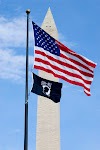

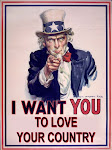
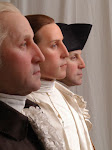
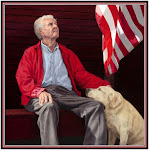


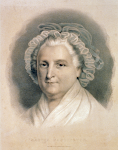

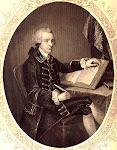
.jpg)
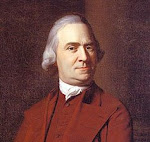
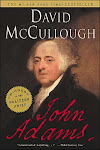


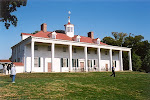
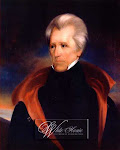

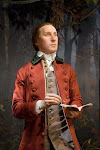


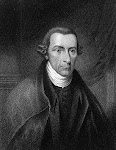
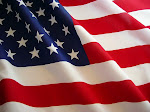


+%26+Tabitha+Simmons+(1765-1850)+Stone+at+Richmond+Cemetery,+KY.jpg)



